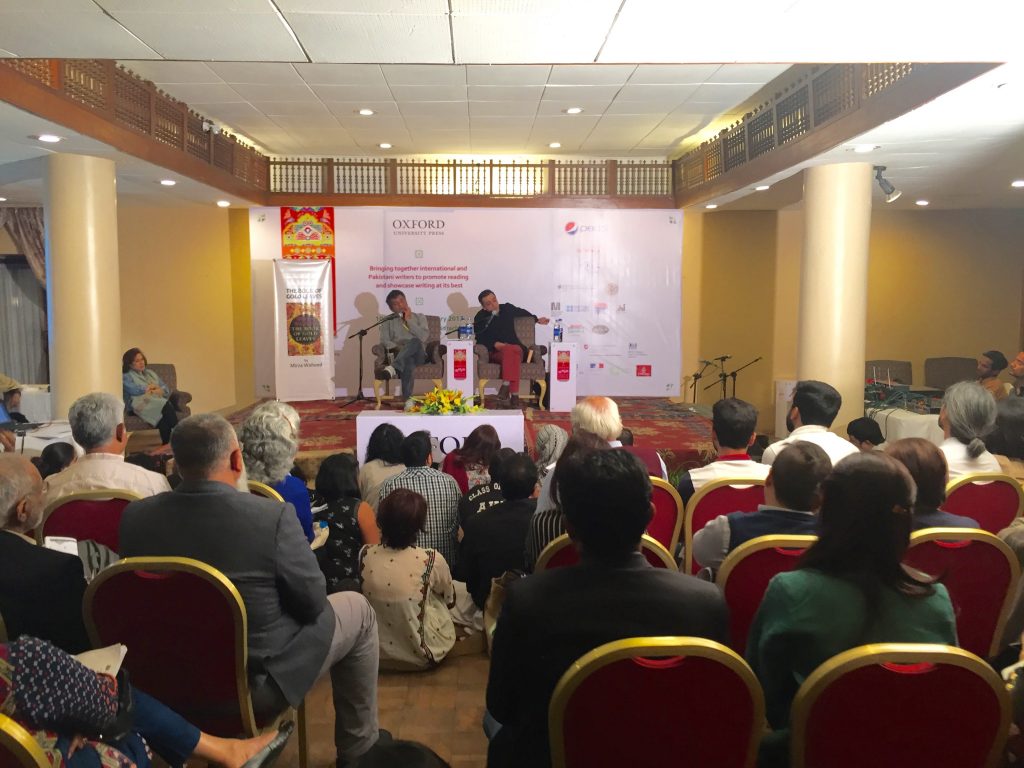Real Stories from Kashmir
At a session titled ‘Of Love in a Place of War’ at the Karachi Literature Festival, Mohammed Hanif introduced Mirza Waheed as the author that Arundhati Roy liked. Hanif also said that Waheed was an old colleague of his and the two had gone through the various trials and tribulations of life, together. He went so far as to add that “he has a great singing voice as well, and if at the end of the session you would like to make some requests, I’m certain he would oblige.”
Commenting on the writing process of his first novel, The Collaborator (Penguin, 2011), Waheed recalled his personal experiences as a teenager, of Indian army crackdowns in Srinagar. During one of the search operations he witnessed, amongst the several dead bodies littering the road, one that was still stirring with some semblance of life. “I imagined that this dying person asked for water. As I was only 16 years old and had a feeble sensibility, that image of bodies lying around stayed with me,” he recalled.
Waheed explained that years later, when he was living in London, this image “did something” for him. He decided to use this experience in his first novel. Waheed said that although he tried to write about beautiful things in his first novel, the dark realities that remained stuck his head could not be ignored. He explained that when you are young you consume the portfolio of Kashmir via cinema, which paints an idealistic, almost romantic picture. “The cinematic representation of Kashmir is probably the worst kind. And then you read a bit and you think there’s something odd about it all,” he reflected.
Hanif, commenting on how different people react differently in a war zone, said that while some chose to take up weapons and fight, others decide to report on it, or write a novel about it. He asked Waheed about his own thought process that drove him to write on the subject.
“I didn’t have it in me to take up arms, I had read too many comics,” explained Waheed. “The idea never crossed my mind. However, it did cross everyone else’s mind.” He went on to clarify that media reports that the violence in Kashmir was Pakistan-sponsored, or carried out by mercenaries and terrorists, were a fabrication. It was nothing of the sort, he explained. “It was your next door neighbour; it was your cousin; it was someone you knew.” Another lie told by the media all these years was that those fighting were from poor families and that the struggle was about class. “Some of the earliest militants in Kashmir were from Burn Hall, the top school in Kashmir,” he revealed.
The writer is a staffer at Newsline Magazine. His website is at: www.alibhutto.com




